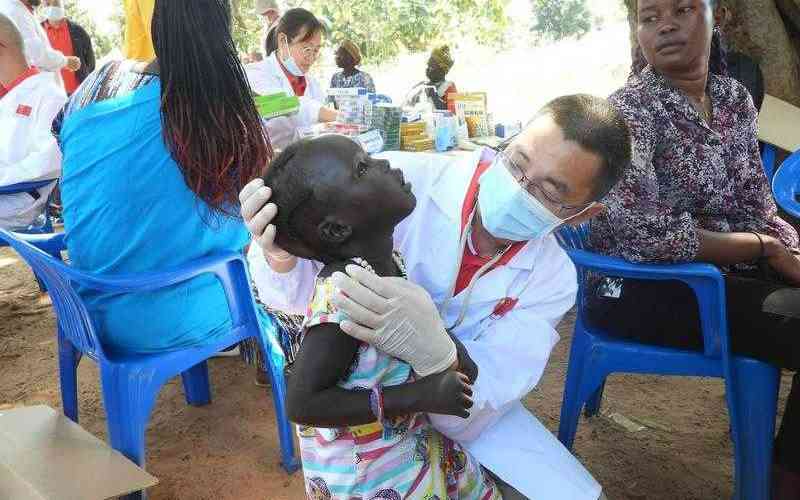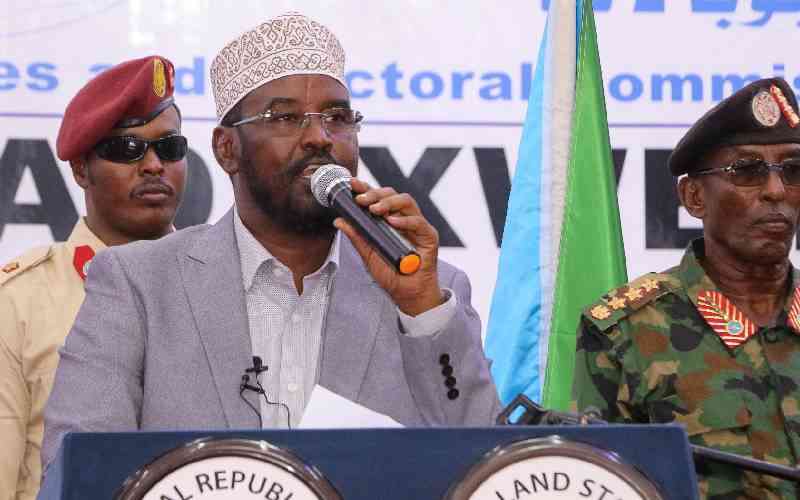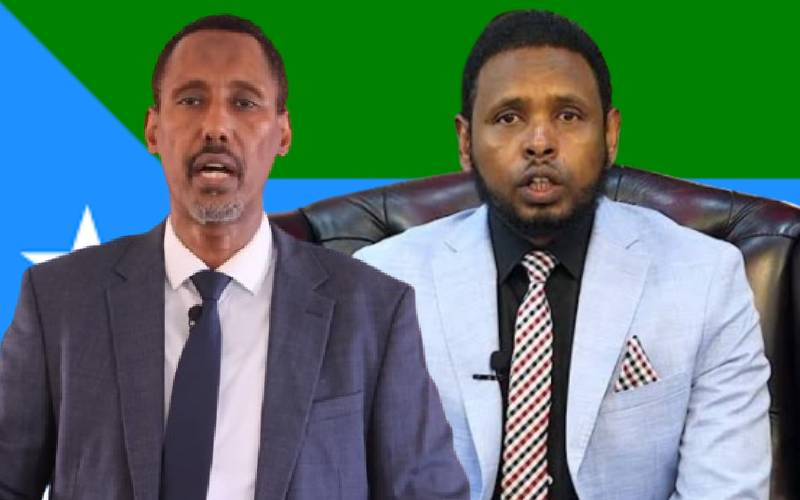By MANGOA MOSOTA
KISUMU, KENYA: George Kut, a Kenyan working in Juba, peeped through the window of his hotel room and saw two people shot dead on the streets by a soldier.
It was at that moment that he realised how bad the conflict was between President Salva Kiir and his former deputy Riek Machar.
Kut, 48, is among Kenyans evacuated from the South Sudan capital on Thursday afternoon, but remains traumatised by the sad incident and echoes of artillery.
He was peeping through the window of a hotel and saw two people shot dead on the streets by a South Sudanese soldier.
One person escaped and ran into the hotel where he sought shelter.
Kut, 48, was about to leave his hotel on Monday last week when he was warned against going outside. “I was told by some of the guests that there was shooting all over so I retreated,” recalls Kut, who was working for a UN body on a peace project.
He adds that there was heavy fighting on that night and on Tuesday.
"On Tuesday night Machar’s (former South Sudan Vice President Riek) house was blown off by heavy artillery," he told The Standard on phone.
He adds: "I was thrown off the bed by the force of heavy machinery. I thought I had been shot," he said.
The Kenyan recalls there being relative calm the following day.
Imposed curfew
But on Thursday morning, he says, they headed to Juba International Airport where everyone was scrambling to get into the available planes. “There were close to 30,000 people from different countries," says Kut.
Once in the plane, they still had to wait for close to 30 minutes before take-off as there were many other planes. “I am so relieved to be alive,” he said, adding that he had worked for three years in the troubled country for a number of organisations.
At the hotel there were about 20 guests of different countries. "We checked on the food in the hotel and realised it would only last a week," he said, adding that they decided to ration meals.
Stay informed. Subscribe to our newsletter
Luke Munene got back to Kenya on Wednesday. He told The Standard that last Saturday night there were gunshots from Bilpam Barrack, about 10 kilometres from where he was living with several Kenyans.
"The following night there was heavier fighting. We stayed indoors after the curfew by President Salva Kiir," said Munene who works for a bank.
Kiir had ordered a 6pm to 6am curfew after he said there was an attempted coup against his government.
Munene, 32, was evacuated with about 60 of his colleagues through a private plane on Wednesday.
On Saturday, President Uhuru Kenyatta ordered the military to move to South Sudan and evacuate Kenyans believed to be trapped there. There are reports that more than 1,000 Kenyans are trapped in Bor town, Jonglei state.
He said the forces fighting the government were under his command.
Meanwhile, the Kenya Defence Forces (KDF) on Sunday brought 86 more Kenyans home.
Speaking at the Wilson airport, Jane Maina, a businesslady, said throughout the crisis, Kenyans supported each other.
She thanked the Government for coming to their rescue.
"This is the best Christmas gift that I could ask for, just to be given a chance to see my family again and spend quality time with them," said Ms Maina.
Those evacuated said most of their property and businesses were looted and destroyed.
During the fighting, most Kenyans remained indoors awaiting communication from the embassy.
It was however reported that many fled into the country by road through the border but their numbers could not be confirmed.
Still stuck
This has brought the number of those repatriated to over one hundred.
Speaking at the airport, where he had gone to receive those arriving, Principal Secretary in the Ministry of Devolution John Konchella said the Government was committed to the safety of its people.
He said the Government, through its embassy in Juba and the KDF, was working to ensure that those still stuck in the country had enough food, water and medicine to sustain them.
"Evacuation efforts are going on smoothly and as planned, our main aim is to ensure that all our people are home safe. The first phase of the evacuation was for the women and children then the second phase will be for the men," said Konchella.
–Additional reporting by Ngari Gichuki
 The Standard Group Plc is a
multi-media organization with investments in media platforms spanning newspaper
print operations, television, radio broadcasting, digital and online services. The
Standard Group is recognized as a leading multi-media house in Kenya with a key
influence in matters of national and international interest.
The Standard Group Plc is a
multi-media organization with investments in media platforms spanning newspaper
print operations, television, radio broadcasting, digital and online services. The
Standard Group is recognized as a leading multi-media house in Kenya with a key
influence in matters of national and international interest.
 The Standard Group Plc is a
multi-media organization with investments in media platforms spanning newspaper
print operations, television, radio broadcasting, digital and online services. The
Standard Group is recognized as a leading multi-media house in Kenya with a key
influence in matters of national and international interest.
The Standard Group Plc is a
multi-media organization with investments in media platforms spanning newspaper
print operations, television, radio broadcasting, digital and online services. The
Standard Group is recognized as a leading multi-media house in Kenya with a key
influence in matters of national and international interest.








